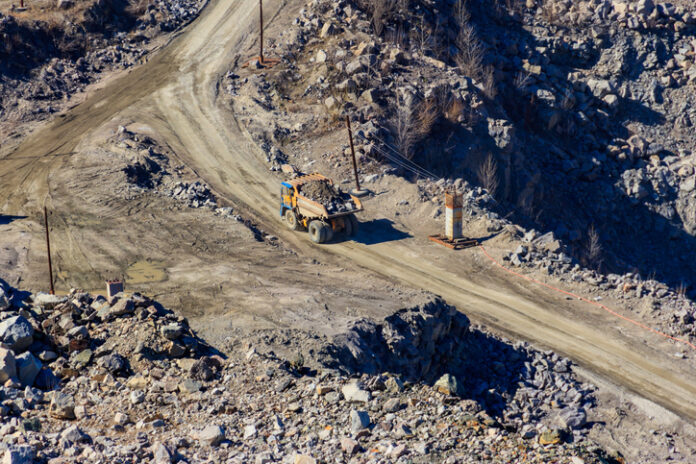A last-minute provision that was added to the Dodd-Frank financial overhaul act in 2010 is causing a bottleneck today in the supply chain for medical equipment helpful in the fight against the pandemic.
Section 1502 of the act prohibits the use of “conflict minerals” from mines controlled by warlords in the Democratic Republic of Congo and its neighboring countries. Public companies in the U.S. must audit their supply chains to make sure even trace amounts of minerals such as gold, tantalum, tin, and tungsten are sourced from legitimate mines.
Medical device manufacturers use the minerals in a variety of products such as syringes to X-rays and ventilators. The minerals are easily mined in Congo and nearby regions on the African continent, but mines have been overrun by warlords who use have used forced labor to run them.
Good intentions, Unintended Consequences
Soon after the provision took effect, mining in the African nations dropped precipitously because of the compliance costs, says John Berlau, a senior fellow at the Competitive Enterprise Institute.
“It’s easier if you are a big company and it’s one reason big companies lobby for more regulation,” Berlau stated on The Heartland Daily Podcast, October 30. “I’ve been looking at some of these companies, and they list hundreds of suppliers and they have to trace everyone one of them to see if the material comes from the Congo.”
Berlau says determining the control of mines is difficult even for the foreign policy experts. “It is a systemic problem over there, as far as government corruption, the lack of rule of law, you don’t change the problem, you just worsen it or shift it,” said Berlau. “There are some instances where warlords just resort to downright looting, trying to run these mines for profit. They’re asking businesses to do the diplomatic and foreign policy work that the state department should be doing. It is not the way trade or foreign policy is supposed to run.”
Other countries like China still do business in Congo and in an odd twist, can be a source of material to U.S. companies, since they are on the conflict mineral watch list. Given the vagaries of the supply market, U.S. companies may hoard raw material or equipment.
“You’re limiting the supply train and end up hurting the very area you’re trying to help,” says Berlau. “Even the New York Times has reported this provision is hurting people.”
Supplies in a Pandemic
Looking forward in the pandemic fight, minerals will be needed not just for medical equipment and supplies, but for refrigeration in vaccine distribution.
Berlau believes the conflict mineral provision in Dodd-Frank can be set aside for two years under an executive order, similar to what President Trump did in getting private companies to build ventilators in the nation’s emergency. “If everyone agrees the Defense Production Act can be invoked, I would certainly think this could happen.”
A last-minute provision that was added to the Dodd-Frank financial overhaul act in 2010 is causing a bottleneck today in the supply chain for medical equipment helpful in the fight against the pandemic.
Section 1502 of the act prohibits the use of “conflict minerals” from mines controlled by warlords in the Democratic Republic of Congo and its neighboring countries. Public companies in the U.S. must audit their supply chains to make sure even trace amounts of minerals such as gold, tantalum, tin, and tungsten are sourced from legitimate mines.
Medical device manufacturers use the minerals in a variety of products such as syringes to X-rays and ventilators. The minerals are easily mined in Congo and nearby regions on the African continent, but mines have been overrun by warlords who use have used forced labor to run them.
Good intentions, Unintended Consequences
Soon after the provision took effect, mining in the African nations dropped precipitously because of the compliance costs, says John Berlau, a senior fellow at the Competitive Enterprise Institute.
“It’s easier if you are a big company and it’s one reason big companies lobby for more regulation,” Berlau stated on The Heartland Daily Podcast, October 30. “I’ve been looking at some of these companies, and they list hundreds of suppliers and they have to trace everyone one of them to see if the material comes from the Congo.”
Berlau says determining the control of mines is difficult even for the foreign policy experts. “It is a systemic problem over there, as far as government corruption, the lack of rule of law, you don’t change the problem, you just worsen it or shift it,” said Berlau. “There are some instances where warlords just resort to downright looting, trying to run these mines for profit. They’re asking businesses to do the diplomatic and foreign policy work that the state department should be doing. It is not the way trade or foreign policy is supposed to run.”
Other countries like China still do business in Congo and in an odd twist, can be a source of material to U.S. companies, since they are on the conflict mineral watch list. Given the vagaries of the supply market, U.S. companies may hoard raw material or equipment.
“You’re limiting the supply train and end up hurting the very area you’re trying to help,” says Berlau. “Even the New York Times has reported this provision is hurting people.”
Supplies in a Pandemic
Looking forward in the pandemic fight, minerals will be needed not just for medical equipment and supplies, but for refrigeration in vaccine distribution.
Berlau believes the conflict mineral provision in Dodd-Frank can be set aside for two years under an executive order, similar to what President Trump did in getting private companies to build ventilators in the nation’s emergency. “If everyone agrees the Defense Production Act can be invoked, I would certainly think this could happen.”
AnneMarie Schieber (amschieber@heartland.org) is managing editor of Health Care News.





















